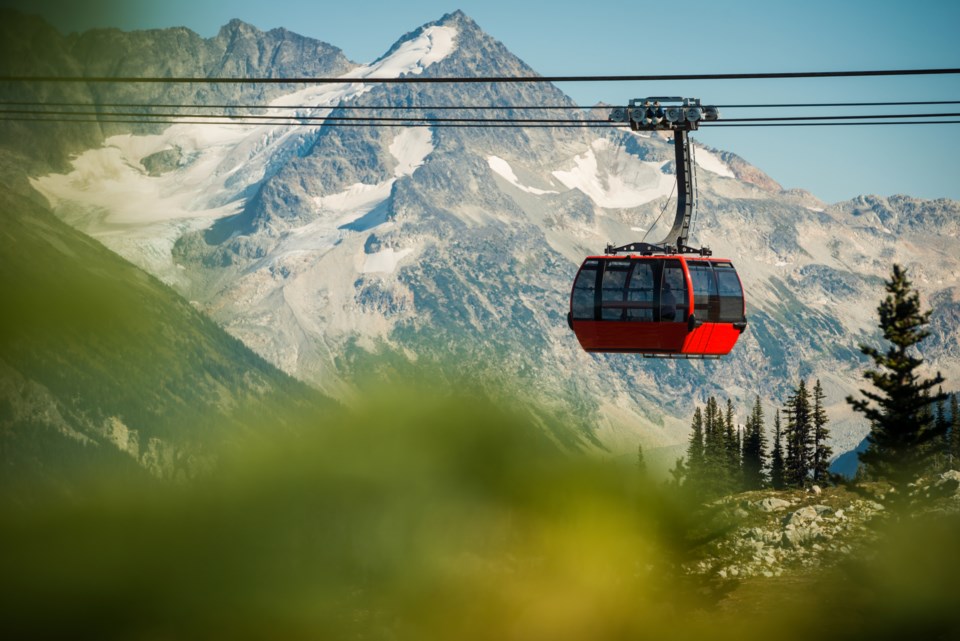Vail Resorts, Whistler Blackcomb’s parent company, posted its first-quarter financials on Monday, Dec. 9, which included a downturn in lodging bookings in Whistler.
“At Whistler Blackcomb, lodging bookings for the full season are lagging prior year levels, which may reflect delayed decision making following challenging conditions in the prior year,” said the Broomfield, Colo. company in its quarterly earnings call.
That would track with the trends being observed locally. Staff at the Resort Municipality of Whistler lowered its 2025 forecast of funds expected to flow in from the Municipal and Regional District Tax by two per cent, which is based on hotel stays.
Company-wide, net loss attributable to Vail Resorts for the quarter ending Oct. 31 was US$172.8 million, down from $175.5 million for the same period the year prior. Resort reported earnings before interest, taxes, depreciation, and amortization loss was $139.7 million for the first fiscal quarter of 2025, which was in line with the $139.8 million from the same period of fiscal 2024.
“Our first fiscal quarter historically operates at a loss, given that our North American and European mountain resorts are generally not open for ski season. The quarter's results were driven by winter operations in Australia and summer activities in North America, including sightseeing, dining, retail, lodging, and administrative expenses,” said Vail Resorts CEO Kirsten Lynch.
Total net revenue increased 0.7 per cent, or US$1.7 million, for the quarter.
Pass product sales through Dec. 3 for this North American ski season were down approximately two per cent in units but rose roughly four per cent in sales dollars compared to last year, thanks to an eight-per-cent increase in pass pricing and unit growth among lower-priced Epic Day Pass products, the company said.
More recently, between Sept. 21 and Dec. 3, pass sales improved somewhat, with unit growth of approximately one per cent and sales dollar growth of approximately seven per cent, compared to the same period last year, due to “expected renewal strength, which we believe reflects delayed decision making,” the company said.
While Vail Resorts acquired “a substantial” number of new pass holders, the total number of new guests this winter was lower than last year, “driven by fewer guests who purchased lift tickets in the past season and from guests who are completely new to our database, which we believe was impacted by last season's challenging weather and industry normalization,” Lynch said.
Over the past four years, pass product sales have grown at Vail Resorts by 59 per cent in units and 47 per cent in sales dollars. The company said 2.3 million guests have non-refundable, advance commitment products this year, which it expects to generate more than US$975 million in revenue and account for roughly three-quarters of all skier visits across its 42 ski areas in North America, Australia, and Europe.
Net revenue for Vail Resorts’ mountain segment increased 0.5 per cent to US$173.3 million for the quarter, driven by an increase in summer visitation at its North American resorts due to improved weather.
Net revenue for the company’s lodging increased $5.4 million, or 6.9 per cent, to $83.8 million for the quarter. Vail Resorts said the increase could be primarily attributed to positive weather conditions in the Gran Teton region, as well as increases to both dining and golf revenues at its North American resorts.
The Colorado ski giant is in the midst of its two-year resource efficiency transformation plan, announced in September, designed to “improve organizational effectiveness and scale for operating leverage” as the company grows globally. Vail Resorts expects $100 million in annual cost efficiencies by the end of the 2026 fiscal year.




